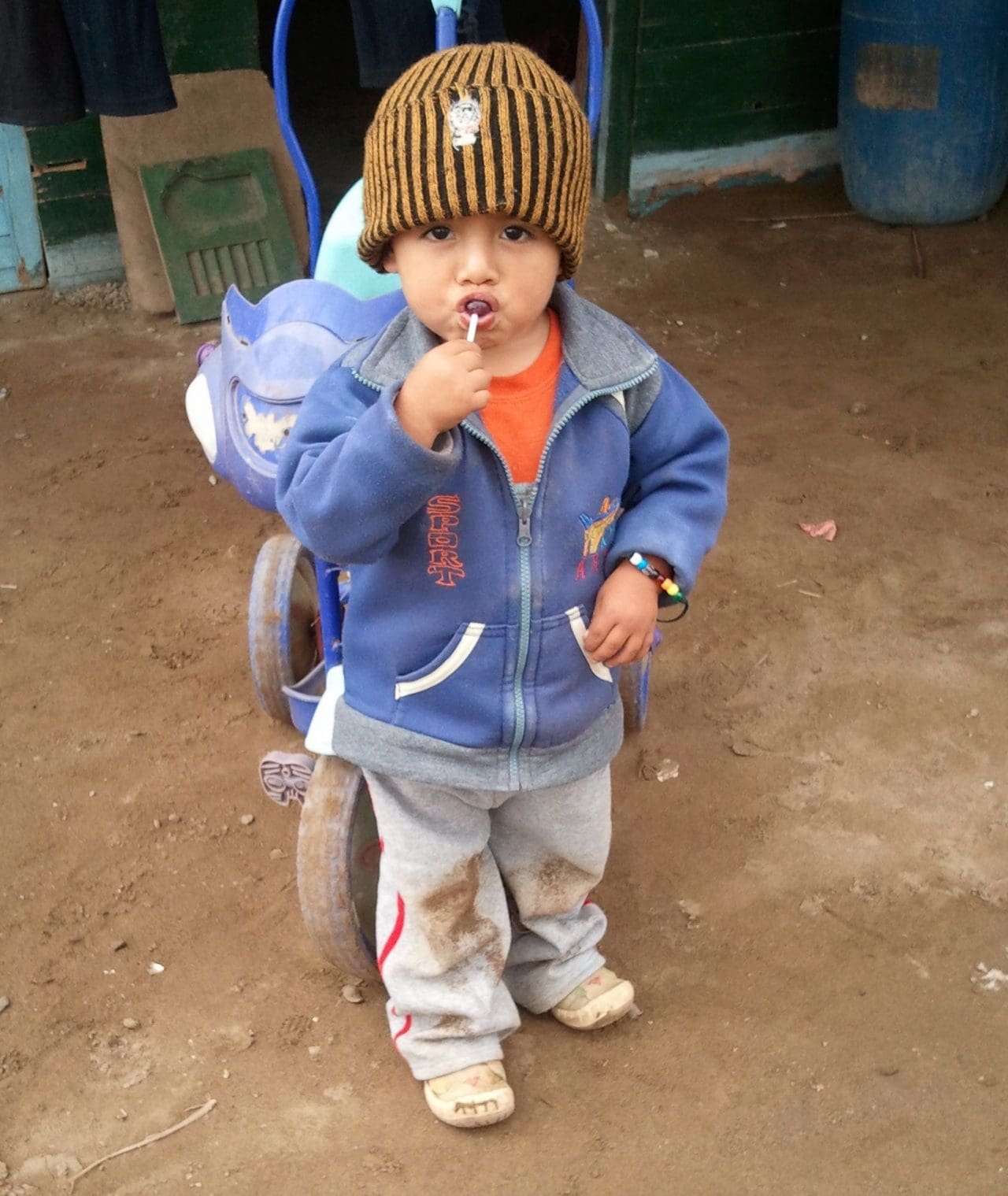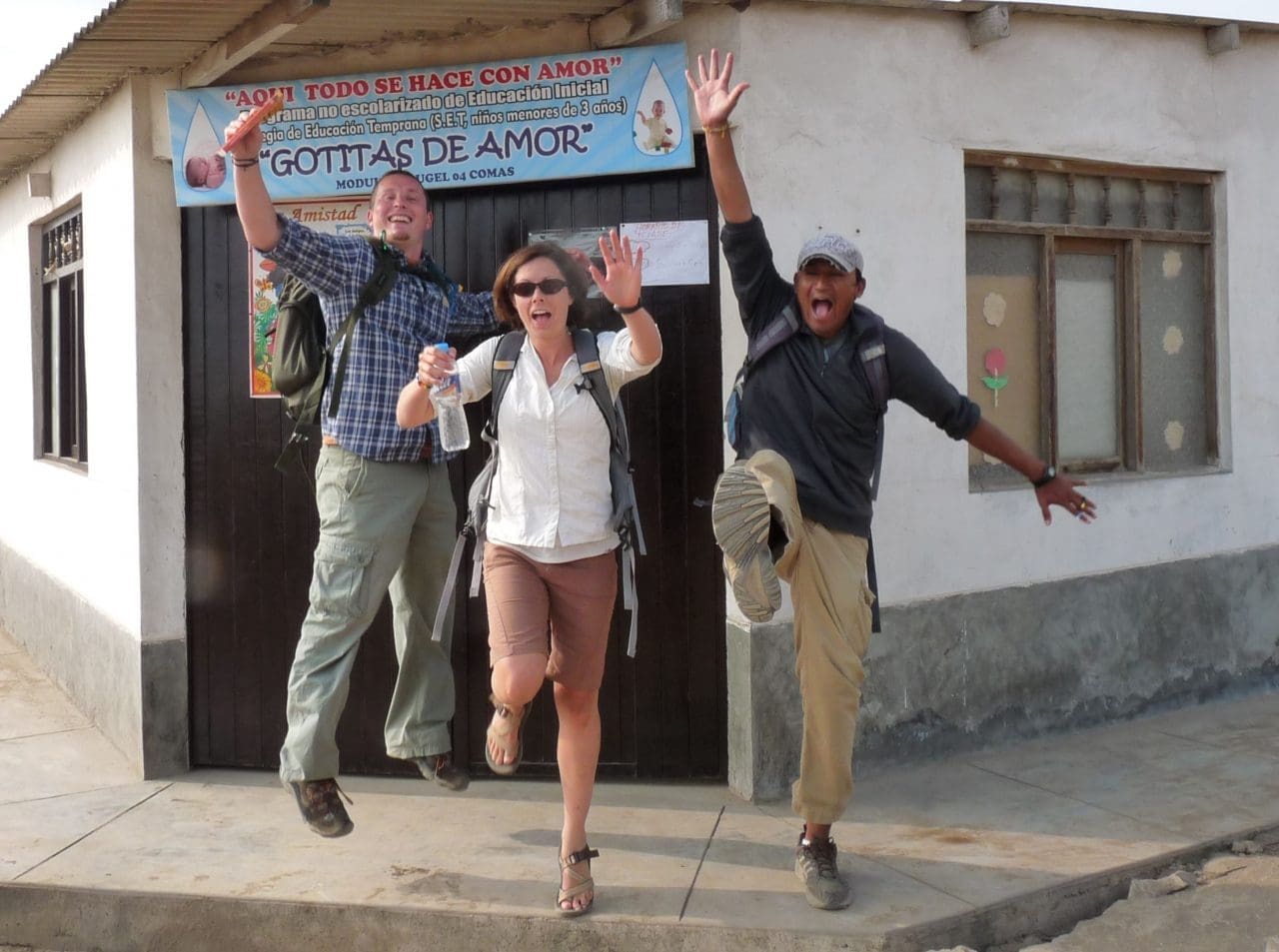
[serialposts]We are so happy you found yourself here today. We know you have a desire to serve others, and we are pretty sure mission related topics make your heart pitter-pat a little bit faster.
May is Missions Month here at Bibledude.net.
Last week, Ray schooled us in ways to ruin a mission trip. This week he’s back. Ray is making us think about mission work, handing out candy, and the cycle of poverty.
Here’s Ray—
: :
I begin to unpack the group’s bags and they have the same materials every previous group brought; medical supplies for the doctors and nurses, construction materials to help repair the school, and candy, lots and lots of candy. This group of volunteers has just traveled all the way from Pittsburgh Pennsylvania to serve a mission in La Croix Haiti. I had been working at the mission for quite some time as a long-term volunteer, and I have the rare opportunity to see the long-term effects of short-term missions.
Though short-term volunteer trips are limited, they can have long-term effects on the community being served, sometimes for better and sometimes for worse. Quite often the negative affects incurred by a short-term missions trip result from activities that seem inconsequential at the time.
One of the best examples of a long-term effect from a short-term trip was the effect candy had on Haitian children. So many groups of volunteers came to Haiti saddled with large bags of candy. In Haiti there seem to be small children everywhere, and quite often the American volunteers would pass out candy whenever they went into a new Lakou, or group of homes. This was fun for the volunteers, and it seemed pretty innocuous at the time. Each volunteer had four or five cute little kids hanging around them, and just a small Tootsie roll would produce the biggest smile. In the moment everyone was happy; unfortunately that was not the end of the story.
Children learn not just by what we say but by what we do, and as more volunteers gave out candy, these children began to associate us with handouts. We became the “Blans” (white people) passing out goodies. We weren’t the people improving the schools, we weren’t the people helping develop more sanitary toilets, we’re the people with candy. Without fail, every trip outside of the mission saw at least one kid shouting “Blan give me candy”. Some of the young adults would come up to me saying “give me a dollar”. When I said no, they walked forward and just acted as if I was never there.
We don’t go on mission trips to be a delivery men, we go to strengthen community institutions, we go to help people become self-sufficient. We see people suffering under an inescapable cycle of poverty, and we try to end that cycle. Bringing people out of poverty is difficult and requires people changing not only their circumstances but their attitudes; it requires community engagement on the most basic level. If the only thing the children think we’re good for is passing out candy, our message of development is lost once the candy is unwrapped.
When the volunteers passed out candy they didn’t see it, but they were labeling themselves as “people who give candy”. The children didn’t want to have that much to do with them unless they were walking away with something. The children were not being unreasonable, they only knew us as people with candy. Development work is difficult, but in order to do it well we need to not just talk about progress, we need to act it out, we can’t just tell people about self-sufficiency, we need to help them rebuild their lives. Some times this is a school or a clinic or a church. It’s something that helps people improve their own lives, and unfortunately freely handing out candy doesn’t do that.
: :
Thanks, Ray. If you are interested in keeping the conversation going, make sure to visit Ray’s blog.
A little more about the author, Ray: Part Time Writer, Part Time Adventurer. Ray is based in Pittsburgh Pennsylvania, but finds himself wandering around the world looking for places where faith, technology, and people come together and produce an interesting story. Author of the upcoming The Trouble with Candy in Haiti (from BibleDude Press).





So well done and so true. Interaction with the community there is so essential. You have to continually ask, “What do you need?” “What do you really want?” Not “What can we do that will make us feel good?”
Jill,
You’ve got it!
Hi! Thanks for talking about the long-term effects short-term volunteers can have – as you point out, they’re almost always a lot more far-reaching and unpredictable than you can see at the time. Your example of short-term volunteers giving out candy and thereby transforming their image in the community as people who just come to give out free things was spot on.
I have a question though – you rightly say that in development, ‘we go to strengthen community institutions, we go to help people become self-sufficient. We see people suffering under an inescapable cycle of poverty, and we try to end that cycle. Bringing people out of poverty is difficult and requires people changing not only their circumstances but their attitudes; it requires community engagement on the most basic level.’
Why, then, are you talking about projects such as basic construction and repairs? I find it very hard to believe there is no-one in that community who could do such repairs or building work. And if there really was no-one, then training and apprenticeship schemes would certainly be much more valuable.
You also mention bringing in construction supplies and medicines. I understand that some things may be hard to source in Haiti, but I find it hard to believe that supplies like cement, nails, etc are impossible to come by? By bringing these donated items I feel you are missing a vital opportunity to stimulate the local economy and support someone’s livelihood in Haiti – whoever owns the hardware shop would surely benefit from this business!
I would love to hear your answers to these questions even though I realise this is now an old post. Stimulating the local economy by hiring local workers (and paying them a fair wage) and buying local products (and paying a fair price) would do a lot more, in my opinion, to counter the image of the ‘blans who give free things’, than simply stopping short-term volunteers from giving out candy. It goes a lot deeper than that. What do you think the repeated presence of long and short-term ‘blans’ doing work for free which could be done by Haitians themselves, but would cost some money (MUCH less than the airfare needed to fly those same volunteers over)?
All of us in these situations must look deeply at why we are doing what we are doing, and how best to do it. And we also have to consider what we look like to community members – how does you repairing their school for free with materials you brought LOOK different than other volunteers giving out free candy? No doubt it feels different to you, but that’s not enough. It has to be perceived as different by those in the community. And to be honest, I’m not sure it really is all that different.
Thankyou for being willing to talk about this topic and for looking critically at short-term missions – it’s very needed! But the impacts of long-term aid also needs to be looked at in terms of creating dependency – something we see tragically often in the developing world.
It’s a difficult, complicated and messy topic. Thankyou for delving into it!